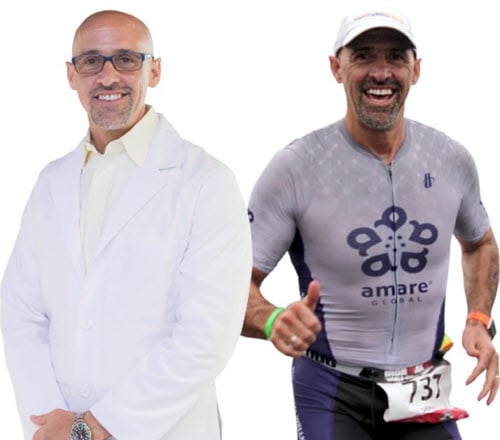I’m sharing this email from our friends at the Corner Canyon Ultra Trail Run in Draper Utah… To all CCUTR Runners/Supporters, Sponsors & Volunteers, A few details about this years race: *** See this years recipients @ www.ccutr.org and on FB @ https://www.facebook.com/CornerCanyonUltraTrailRun/ Thanks to all our runners, sponsors and volunteers we have been able to donate $38,000.00 dollars as of
Rockets assistant says 40 percent of NBA has mental health issues
With Kevin Love and DeMar DeRozan bringing attention to mental health issues in the NBA, John Lucas II says the league has a big problem. — Read on rocketswire.usatoday.com/2018/08/20/john-lucas-40-percent-nba-mental-health-issues/
Athletes Share Their Mental Health Coping Strategies | Outside Online
I reached out to six pro athletes to hear about their own struggles with mental illness and how they worked through it. — Read on www.outsideonline.com/2333946/5-athletes-their-experience-mental-illness
The Exercise That Helps Mental Health Most – WSJ
The Exercise That Helps Mental Health Most – WSJ — Read on www.google.com/amp/s/www.wsj.com/amp/articles/the-exercise-that-helps-mental-health-most-1534777677 The Exercise That Helps Mental Health Most Certain fitness routines do more to help avoid depression, stress or other emotional problems, new research finds By Sumathi Reddy Aug. 20, 2018 11:07 a.m. ET We assume exercise improves our mental health. But what
Microbiome-nervous System Interactions in Health and Disease | Zuckerman Institute
This seminar will be held in the Neurological Institute of New York’s Auditorium (1st floor). Columbia University’s Intercampus Shuttle Service is the best way to travel between campuses. — Read on zuckermaninstitute.columbia.edu/microbiome-nervous-system-interactions-health-and-disease The concept of gene-environment interactions, wherein genetic predisposition shapes one’s response to particular environmental exposures, is widely recognized in a variety of neurological
How a healthy gut can help you lose weight | JOE.co.uk
Calories are crucial, but your gut health is also essential for burning body fat — Read on www.joe.co.uk/fitness-health/how-healthy-gut-can-help-you-lose-weight-195274
Wall Street Journal – Keep Your Microbiome Balanced to Stay Healthy
www.wsj.com/articles/gut-feeling-to-stay-healthy-keep-your-bodys-microbes-in-line-1534503600
Kevin Love on LeBron James’ Support After Mental Health Revelation | PEOPLE.com
LeBron James may no longer be teammates with Kevin Love, but he’ll always have his back — Read on people.com/sports/kevin-love-mental-health-anxiety-lebron-james-support/
Taking Mental Health Seriously Is How the Best Business Leaders Protect Their Teams
One in five people — including your employees — is struggling with a mental illness. — Read on www.entrepreneur.com/article/318018
Hopelab – A National Survey Sponsored By Hopelab and Well Being Trust 2018
Hopelab – A National Survey Sponsored By Hopelab and Well Being Trust 2018 — Read on www.hopelab.org/report/a-national-survey-by-hopelab-and-well-being-trust-2018/ For public health advocates, the message is that investment in digital health resources for youth is money and time well spent – 87% of young people have looked online for health information and nearly all find it at
Page [tcb_pagination_current_page] of [tcb_pagination_total_pages]
